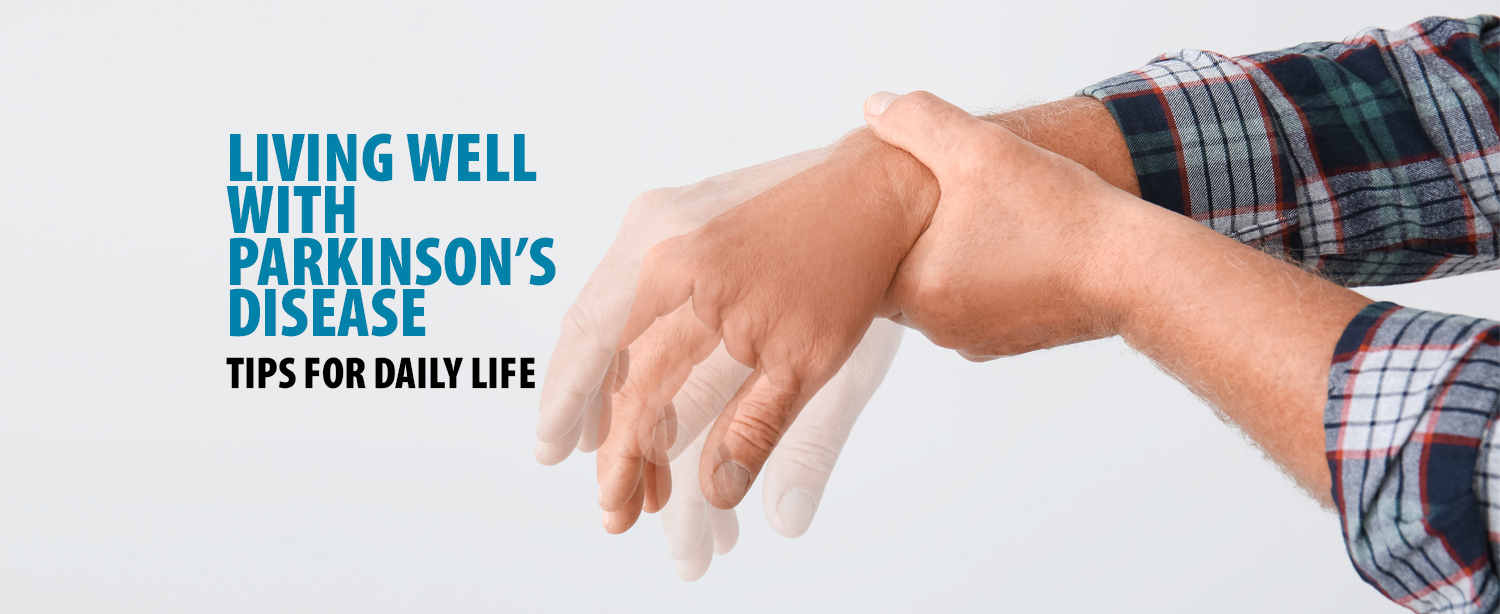More than 70 lakh Indians suffer from this neurological condition.Living with Parkinson’s disease presents unique challenges, both for individuals diagnosed with the condition and for their caregivers. Parkinson’s disease is a progressive neurological disorder that affects movement, characterized by symptoms such as tremors, stiffness, and difficulty with balance and coordination. It can also impact cognitive function, mood, and overall quality of life. While there is currently no cure for Parkinson’s, various treatment options and lifestyle modifications can help manage symptoms and improve daily functioning.
Are you a Parkinson’s patient? How do you live your daily life? Use of practical strategies can make a significant difference in your daily life &help manage the symptoms easily.
Here are some helpful tips to incorporate in your routine to enhance your life while living with Parkinson’s disease:
- Stay Active
Regular exercise is crucial for managing symptoms and maintaining mobility. Engage in activities such as walking, swimming, or tai chi to improve balance, flexibility, and strength. - Follow Medication Schedule
Consistency with medication is essential for controlling symptoms. Set reminders or use pill organizers to ensure timely intake of prescribed medications. - Take things at your pace
Forming new habits take time. You must be kind to yourself and acknowledge that progress takes time. Take things slowly and gradually adjust your schedule and stick to it. - Eat Smart
Prioritize a balanced and healthy diet with fruits, vegetables, whole grains, and lean proteins. Consider smaller, more frequent meals, and stay hydrated. Work with a certified nutritionist to plan your meals. - Sleep well
Numerous people experiencing difficulty falling asleep find it more manageable to unwind by taking a warm bath, engaging in reading, or practicing mindfulness meditation before bedtime. - Prioritize Self-Care
Practice relaxation techniques, such as deep breathing or meditation, to alleviate stress and promote emotional well-being. Adequate rest and nutrition are also vital for overall health. - Seek Support
Joining a support group or connecting with others living with Parkinson’s can provide valuable encouragement and understanding. Sharing experiences and coping strategies can foster a sense of community and resilience.Reach out to medical experts for counselling if required. - Establish Routine
Create a daily routine for predictability. Ensure ample of time for rest, prioritize an active lifestyle and maintain a good sleep hygiene. - Use Assistive Devices
Explore assistive devices and home modifications for safety and independence. Your doctor can recommend tools to make daily tasks easier. - Adapt Environment
Make modifications to the home environment to enhance safety and accessibility. Install handrails, grab bars, and remove obstacles to prevent falls and accidents.
Living well with Parkinson’s requires a multifaceted approach that addresses physical, emotional, and practical needs. By implementing these tips and strategies, patients and caregivers can navigate the challenges of Parkinson’s disease with greater confidence and resilience. We are together with you in this journey. With knowledge, support, and proactive management, it is possible to maintain a fulfilling and meaningful life despite Parkinson’s.
Parkinson’s treatment at Kokilaben Dhirubhai Ambani Hospital
Have you or a loved been diagnosed with Parkinson’s disease? Our dedicated team of physical therapists, occupational therapists, speech therapists, and dietitians are here to provide compassionate support and comprehensive care at our Parkinson’s clinic. While Parkinson’s may not have a cure, our tailored therapies are designed to alleviate symptoms and enhance your daily life. At our clinic, we offer a range of treatment options, including medication and surgical interventions, overseen by parkinson’s specialist. With state-of-the-art facilities such as a 3 Tesla MRI for precise diagnostics, an advanced Gait and Balance Lab, nutritional guidance, and a fully equipped rehabilitation room, we’re committed to delivering personalized, goal-oriented physiotherapy. Explore our “Total Parkinson Care Program,” meticulously crafted to meet the unique needs of Parkinson’s patients. For more information, visit our website below. https://www.kokilabenhospital.com/departments/clinicsatkh/parkinsonsclinic.html


